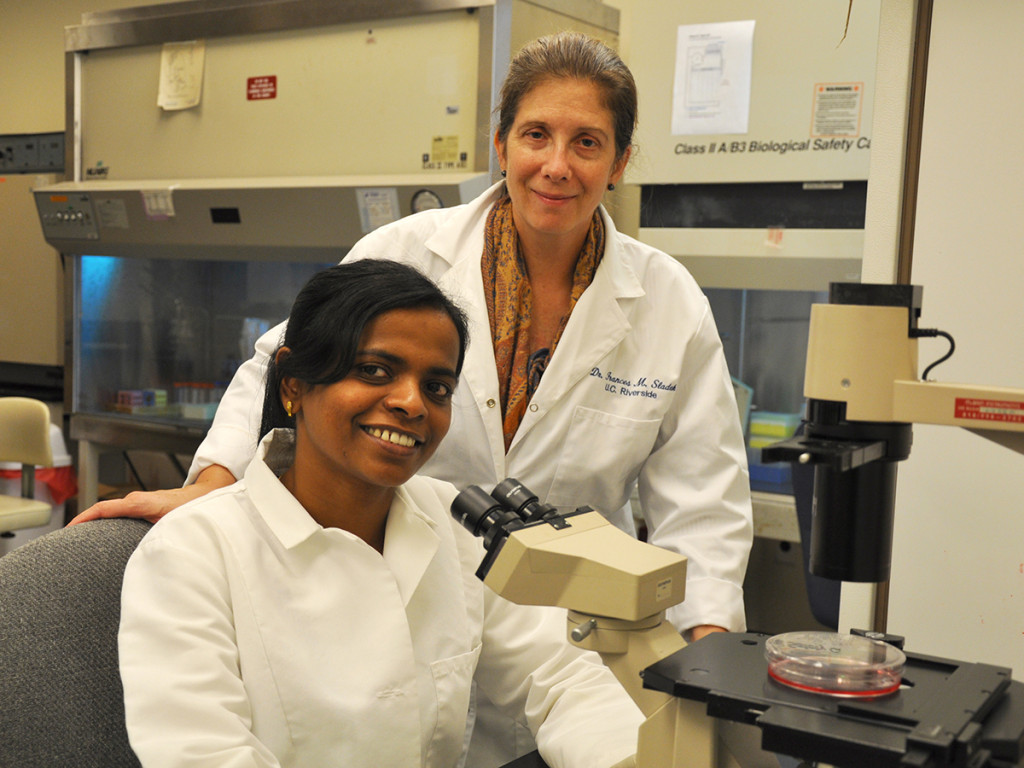
Professor of Cell Biology Frances M. Sladek and a team of researchers at UCR published a study in the journal “eLife” that explains a possible method of preventing colon cancer and inflammatory bowel disease (IBD). IBD has two different forms known as ulcerative colitis and Crohn’s disease.
Sladek and the researchers used mice to study the effects that an imbalance in the P1 and P2 isoforms — proteins found in the intestinal lining — has on the causation of tumors. While much of the research community accepts that the isoforms play a role in the disease, the team’s research will provide more insight into what exactly the isoforms do.
It was found that mice chemically engineered with only the P1 isoform developed less tumors than those with a higher level of the P2 isoform. Karthikeyani Chellappa, one of the postdoctoral researchers involved in the study, said their findings “suggests that finding a drug to stabilize one isoform should be more effective than targeting both isoforms for treating colitis and colon cancer.”
The P1 isoform is more effective because unlike the P2 isoform, it has more of a “barrier function” since the mucosal barrier prevents bacteria from invading the gastrointestinal lining. By isolating the P1 isoform, researchers can utilize it as a form of protection from different bacterias. This is important because when harmful bacteria is able to invade the colonic wall, the risk of colitis and cancer increases significantly.
The next step in their study is to determine which foods affect the distribution of the P1 and P2 isoforms. This part of the project will be led by Poonamjot Deol and will aid in developing their understanding of how the drug could potentially work.
This aspect of the study will also be helpful in determining whether there is a link between obesity and colitis. Deol told UCR Today, “In the case of colitis, could soybean oil be playing a part in allowing bacteria to get across the barrier function? We do not know. We know its detrimental effect on obesity. But more research needs to be done where colitis is concerned.”
Ulcerative colitis and Crohn’s disease have become increasingly common across the United States, as 1.6 million people are affected by the disease. The disease is caused by certain diets and a person’s genetic predisposition to the disease. Often people who have IBD are at a higher risk for contracting colon cancer, which is a large cause of death in the United States.








